DJI Shell Game Exposed: Security Bot Catches DJI’s Fikaxo Proxy Before Congressional Deadline
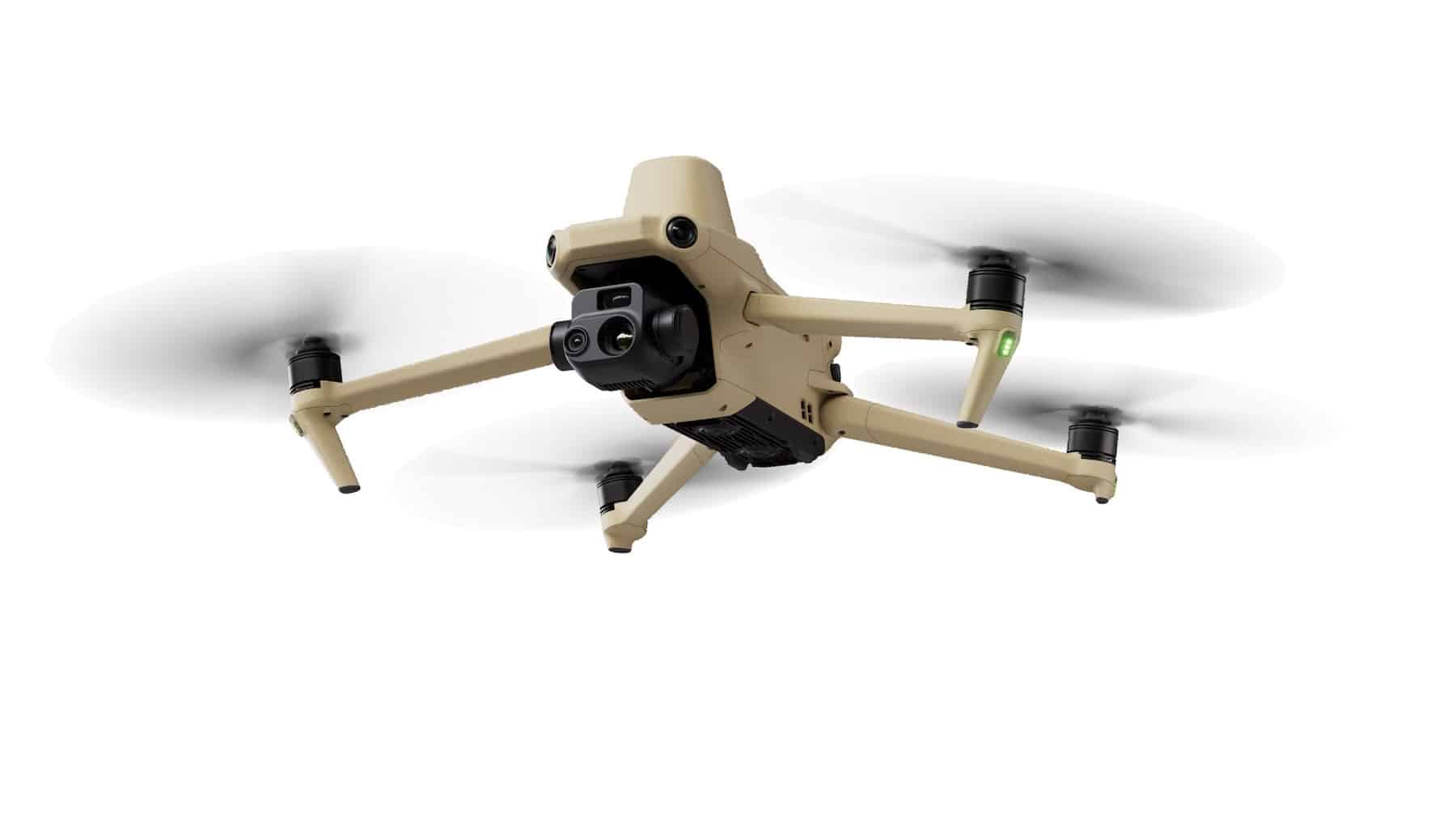
Check out the Best Deals on Amazon for DJI Drones today!
Security researcher uncovers Fikaxo, DJI’s newest proxy company as Chinese drone maker’s shell network adapts to escalating US restrictions through automated frequency monitoring
A new DJI shell company called Fikaxo Technology Inc. has been discovered through sophisticated frequency analysis, representing the latest evolution in a growing network of proxy companies designed to circumvent US restrictions on Chinese drones. The discovery demonstrates how security researchers are staying ahead of DJI’s shell company strategy through automated monitoring systems that detect rebranded products regardless of corporate disguises.
READ MORE: DJI FACES DECEMBER BAN DEADLINE AS POLITICAL PRESSURE SPAWNS PROXY COMPANY NETWORK
Fikaxo emerges as the newest confirmed addition to a documented network of DJI proxy companies that use identical hardware, firmware, and technical infrastructure while marketing themselves as independent American alternatives. The company’s hastily constructed website and suspicious corporate structure follow patterns established by earlier shell operations, suggesting DJI continues expanding its circumvention strategy despite mounting congressional scrutiny.
BREAKING: DJI SHELL COMPANY JOVISTAR SIGNALS MINI 5 PRO CLONE FOR U.S. MARKET
The discovery comes as Congresswoman Elise Stefanik leads unprecedented congressional oversight of what she calls “DJI drones pose the national security threat of TikTok, but with wings” – companies that maintain Chinese surveillance capabilities while appearing to operate as legitimate US businesses. Fikaxo’s emergence just months before the December 2025 NDAA Review deadline demonstrates the urgency of DJI’s efforts to maintain US market access through proxy arrangements.
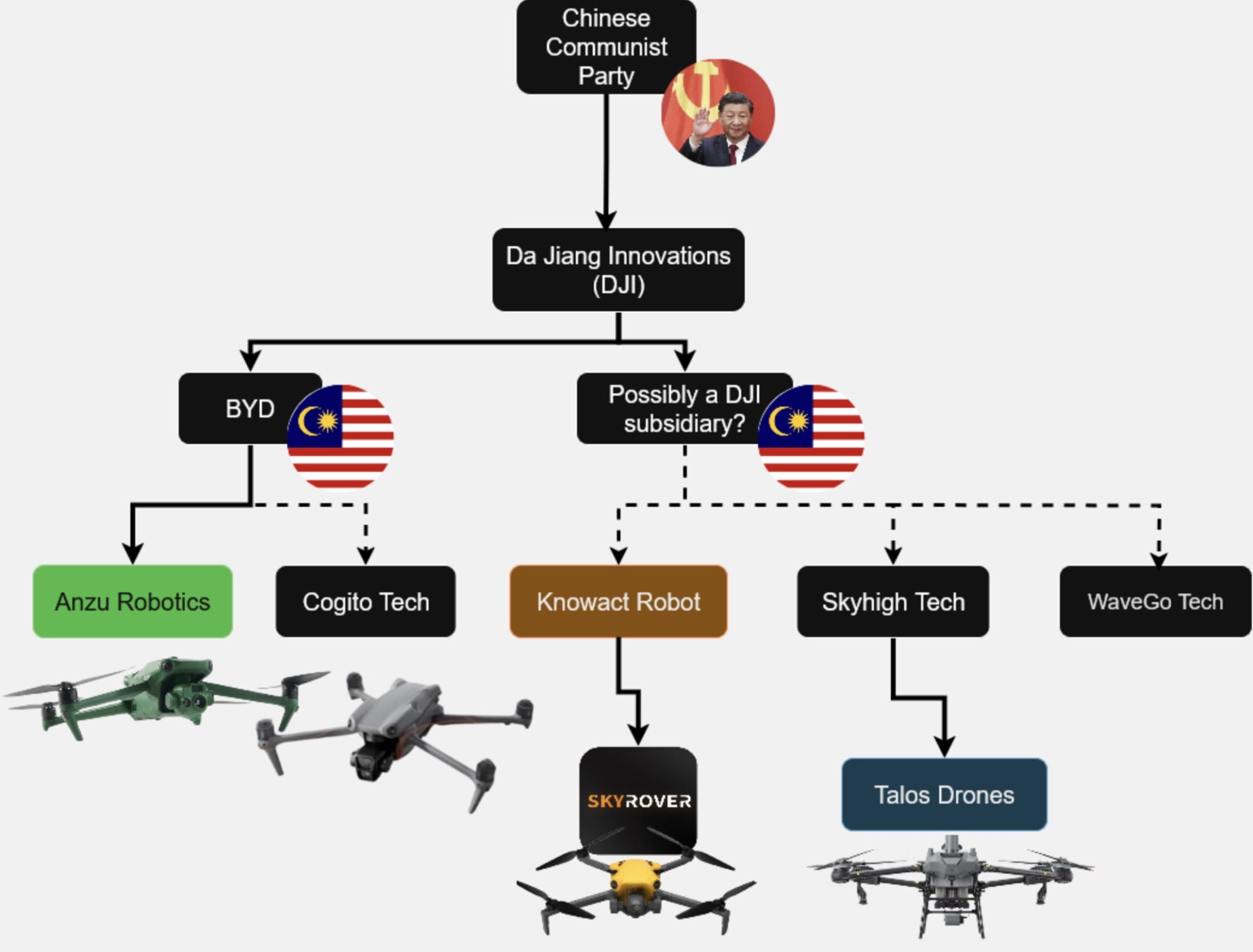
Fikaxo discovery reveals sophisticated detection methods
The identification of Fikaxo Technology Inc. showcases advanced technical analysis that manufacturers cannot easily circumvent. Security researcher Konrad Iturbe discovered the company through his automated frequency monitoring system that analyzes FCC registrations for DJI’s proprietary OcuSync communication protocols.
“I built a small bot that finds these shells. Every day, the bot goes to the FCC and it searches through the listings for the DJI Ocusync, specific frequencies,” Iturbe explained. “And if there’s a new release, it puts it on the GitHub. And that’s how you find new DJI shell companies.”
Iturbe’s methodology combines hardware teardowns, software analysis with the help from other prominent researchers such as Kevin and Andreas, and frequency pattern recognition to identify true manufacturers regardless of corporate branding. DJI’s OcuSync frequency system creates unique RF fingerprints that cannot be replicated by competitors.
“All DJI drones use customized hardware to encode signals and emit packets, OcuSync is DJI’s proprietary protocol for communication, and the frequencies used by OcuSync drones are very specific and not found in other hardware,” Iturbe noted.
The technical evidence includes DJI’s proprietary P1 Pigeon chipsets, identical OFDM structures with 601 sub-carriers, and specific synchronization sequences that appear across all shell company products. Each drone broadcasts unencrypted DroneID packets every 640ms containing location data, serial numbers, and telemetry that reveals the true manufacturer despite corporate rebranding efforts. This technical fingerprinting enables researchers to expose shell companies even when traditional business intelligence fails to reveal ownership connections.
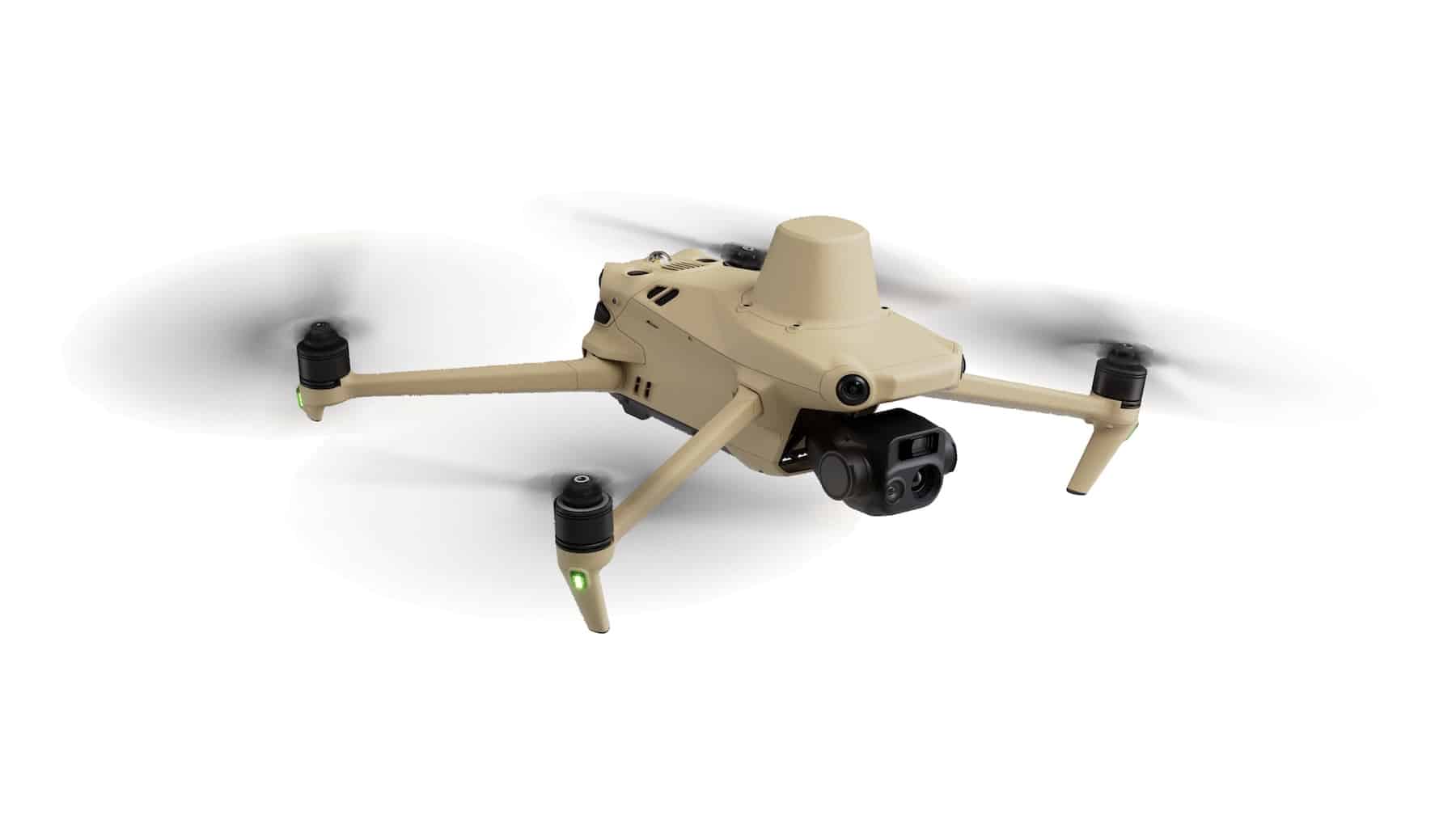
Fikaxo website analysis reveals hasty construction
The Fikaxo website at fikaxo.net displays multiple indicators of shell company operations. The site contains numerous spelling mistakes, references to competitor Autel Robotics in the footer, and uses a Gmail address for business contact – all characteristics that distinguish hastily constructed shell operations from legitimate businesses.
Fikaxo Technology Inc. lists a San Diego, California address at “Suite A, 7498 Colchester Court, Otay Mesa,” but the location appears to be a virtual office arrangement commonly used by shell companies to establish US presence while minimizing physical footprint. The company claims to be “a U.S.-based technology company founded by a team of drone and communications experts” with plans for eventual US manufacturing, using language nearly identical to earlier shell companies.
The Fikaxo E1 drone appears to be a rebranded DJI Mavic 3 Enterprise offered in a distinctive beige color scheme. The company’s website showcases three drone models – the N1, T1 (both show strong resemblance to the DJI Mini 4 Pro), and E1 – suggesting a broader product line that mirrors DJI’s consumer and enterprise offerings. However, the technical specifications, imagery, and marketing materials show clear indicators of direct DJI heritage rather than independent development.
The company’s claims about US-based development and local data deployment follow scripts established by earlier shell operations like Cogito, designed to address national security concerns while maintaining dependence on DJI’s technical infrastructure and support systems.
Growing shell company network demonstrates systematic strategy
Fikaxo represents the latest addition to a documented network of DJI proxy companies that security researchers have identified through frequency analysis. Konrad Iturbe’s comprehensive investigation has catalogued multiple confirmed shell operations spanning various product categories and jurisdictional arrangements:
Anzu Robotics remains the most transparent operation, with company leadership acknowledging that the partnership emerged as a strategic response to legislative restrictions. The company’s Raptor and Raptor T drones are confirmed rebranded DJI Mavic 3 Enterprise models with components, firmware, and instruction manuals directly derived from DJI originals.
Editor’s note for clarification: Anzu Robotics is an American company owned and operated by American citizens that introduced a drone lineup based on DJI Mavic 3 drones running on US-made software from Aloft. Anzu Robotics is not a shell company under the control of DJI. However Anzu is one of the companies that bring drones using DJI hardware and technology to the United States.

Cogito Tech Company Limited represents the first documented shell company, selling the Specta Air (identical to DJI Air 3) and Specta Mini (DJI Mini 2 clone) through Hong Kong corporate structures. Internal code analysis reveals “DJI” listed as manufacturer while displaying “SPECTA” as vendor brand. Additional companies following similar patterns include Skyhigh Tech, Talos, Wavego, Skyany, Knowact, and Xtra – each maintaining minimal corporate transparency and basic websites while distributing exclusively through Amazon.
“The rest of the companies try to hide as much as possible who is running the show. Basic website, only selling on Amazon. Delaware corp via a middleman,” Iturbe documented in his research.
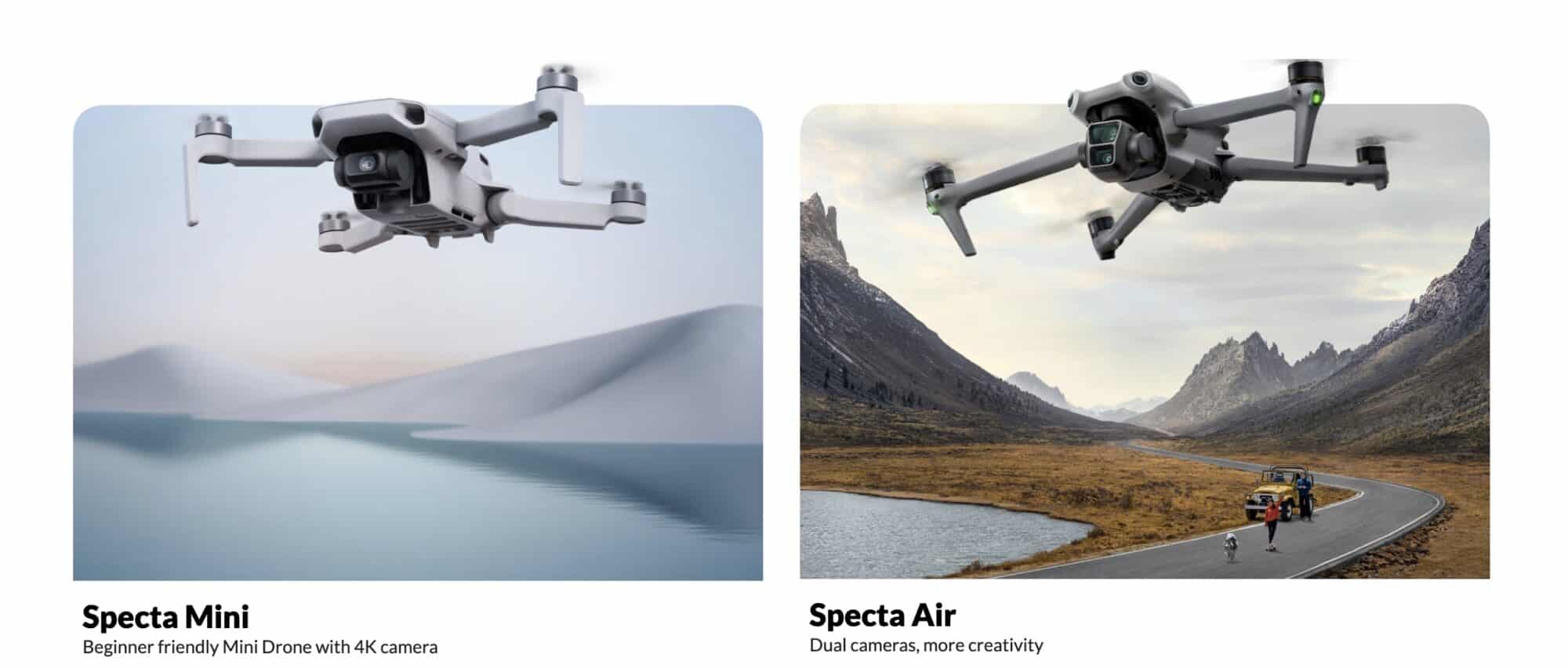
Regulatory pressure intensifies as deadline approaches
Fikaxo’s emergence demonstrates DJI’s continued expansion of shell operations despite escalating federal restrictions across multiple agencies. The December 23, 2025 deadline creates urgent pressure for DJI to establish alternative market access before automatic inclusion on the FCC’s “Covered List” effectively prohibits new Chinese drones from US communications networks.
The regulatory framework now spans comprehensive federal coordination beginning with Department of Defense prohibitions in 2017, followed by Department of Interior restrictions in 2019. DJI currently faces “Chinese Military Company” designation by the DoD, Commerce Department Entity List inclusion, and Treasury Department sanctions targeting the company’s role in “biometric surveillance and tracking of ethnic and religious minorities in China.“
Congresswoman Elise Stefanik’s Countering CCP Drones Act passed the House unanimously in September 2024, representing unprecedented bipartisan consensus on Chinese drone restrictions. Her comprehensive legislative campaign includes the Drones for First Responders Act imposing substantial tariffs on Chinese-controlled drones and using revenue to fund grants helping emergency services purchase domestic alternatives.
DJI’s vulnerability stems from Chinese legal requirements under the National Security Law forcing the company to “report to and cooperate with PRC authorities” and “assist with state-directed intelligence and counterintelligence efforts.” Combined with documented security failures including exposed AWS S3 buckets that leaked user data, these factors have created sustained congressional support for comprehensive restrictions.
Industry impact and enforcement challenges
The shell company strategy reflects DJI’s efforts to maintain market position as regulatory pressure threatens its estimated 70-90% US market dominance. The Chinese drone manufacturer has generated significant economic activity through the US market, though the precise impact of restrictions remains subject to ongoing analysis by industry researchers and government agencies.
Emergency services and commercial operators face significant challenges as approved domestic alternatives often cost substantially more with extended delivery timelines. Some public safety agencies report reliability concerns with approved alternatives compared to proven DJI performance, creating operational complications for critical services.
The agricultural drone market faces particular disruption, as DJI dominates specialized applications including spray drone operations that could face significant restrictions under comprehensive Chinese drone limitations. Industry analysts continue evaluating the balance between national security benefits and potential market disruptions affecting American businesses and consumers.
DJI has responded through legal challenges including federal lawsuits against the Department of Defense seeking removal from military company lists, while implementing compliance measures like “Local Data Mode” operation without internet connectivity to address data security concerns.
Enforcement complications and future implications
The Fikaxo discovery demonstrates sophisticated circumvention strategies that exploit regulatory gaps through international manufacturing arrangements and proxy corporate structures. While licensing agreements may appear technically legal, congressional investigators argue they violate the spirit of national security restrictions by maintaining Chinese control over critical technology infrastructure.
Congressional oversight focuses on whether shell companies properly disclose DJI relationships in FCC filings and whether arrangements constitute violations of foreign agent registration requirements. The investigation examines licensing terms, financial arrangements, manufacturing locations, and data handling procedures across the documented shell network.
Enforcement complexity increases through multi-jurisdictional corporate structures spanning Texas, Hong Kong, Malaysia, and Delaware, creating challenges for US regulatory agencies accustomed to domestic enforcement actions. The automated detection methods developed by security researchers may prove more effective than traditional regulatory approaches for identifying emerging shell operations.
The December 2025 deadline creates pressure for resolution, but the shell company strategy will likely continue evolving through additional proxy arrangements in allied countries as DJI adapts to each new regulatory restriction.

DJI Mavic 3 Enterprise drone shown.
DroneXL’s Take
Fikaxo’s discovery through automated frequency analysis represents a significant breakthrough in exposing shell company operations that traditional business intelligence might miss. Konrad Iturbe’s technical approach demonstrates how security researchers can stay ahead of sophisticated circumvention strategies through systematic monitoring of technical signatures that manufacturers cannot easily disguise.
The shell company phenomenon highlights fundamental tensions between national security policy and technological reality. While congressional concerns about Chinese surveillance capabilities merit serious consideration, the current regulatory approach creates market distortions that may ultimately prove counterproductive to both economic and security objectives.
The focus should shift toward developing effective security standards that protect American interests while enabling legitimate competition and innovation. Rather than playing whack-a-mole with individual shell companies, comprehensive solutions require addressing the underlying technical dependencies and data security concerns that drive national security restrictions.
Fikaxo’s emergence just months before the FCC deadline suggests DJI will continue adapting its circumvention strategies regardless of regulatory pressure. The outcome will significantly influence how the US addresses similar challenges across other technology sectors where Chinese companies maintain substantial market presence, making this case study critical for future policy development.
What are your thoughts on this latest shell company discovery? Share your insights in the comments below.
Discover more from DroneXL.co
Subscribe to get the latest posts sent to your email.
Check out our Classic Line of T-Shirts, Polos, Hoodies and more in our new store today!

MAKE YOUR VOICE HEARD
Proposed legislation threatens your ability to use drones for fun, work, and safety. The Drone Advocacy Alliance is fighting to ensure your voice is heard in these critical policy discussions.Join us and tell your elected officials to protect your right to fly.
Get your Part 107 Certificate
Pass the Part 107 test and take to the skies with the Pilot Institute. We have helped thousands of people become airplane and commercial drone pilots. Our courses are designed by industry experts to help you pass FAA tests and achieve your dreams.

Copyright © DroneXL.co 2026. All rights reserved. The content, images, and intellectual property on this website are protected by copyright law. Reproduction or distribution of any material without prior written permission from DroneXL.co is strictly prohibited. For permissions and inquiries, please contact us first. DroneXL.co is a proud partner of the Drone Advocacy Alliance. Be sure to check out DroneXL's sister site, EVXL.co, for all the latest news on electric vehicles.
FTC: DroneXL.co is an Amazon Associate and uses affiliate links that can generate income from qualifying purchases. We do not sell, share, rent out, or spam your email.




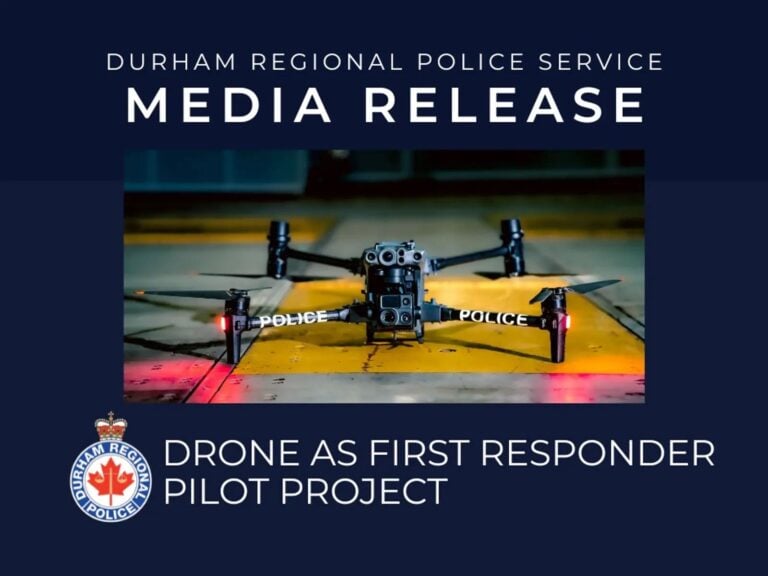
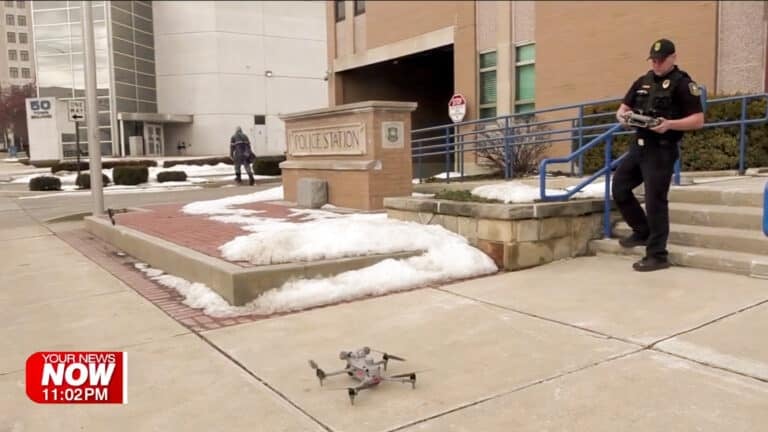
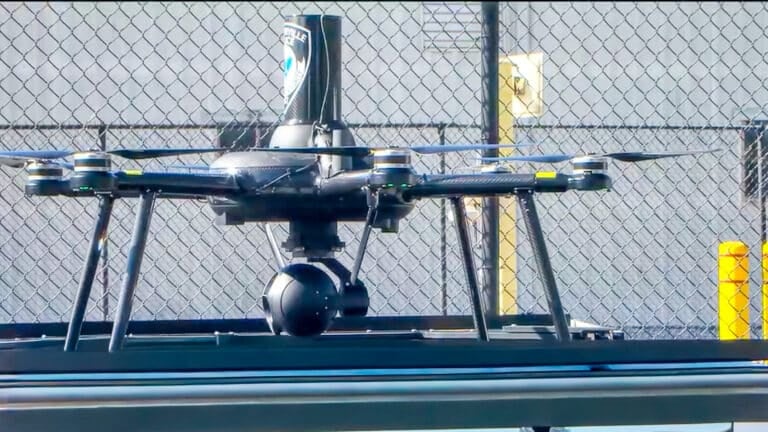



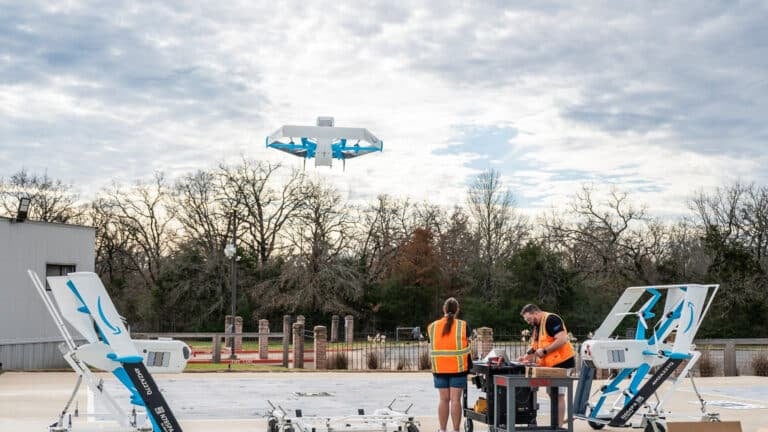


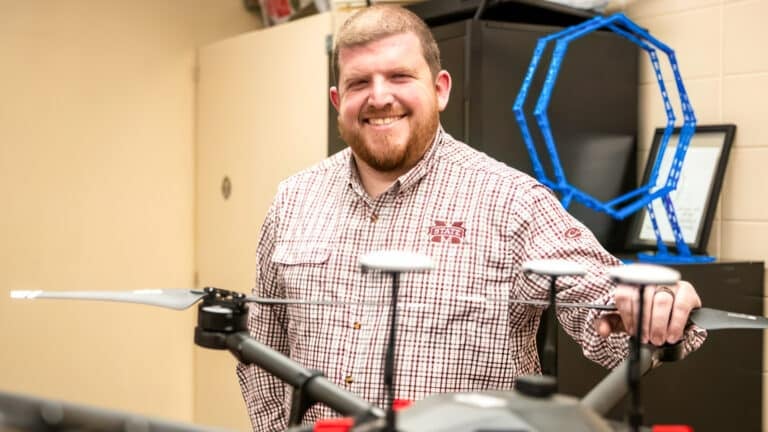
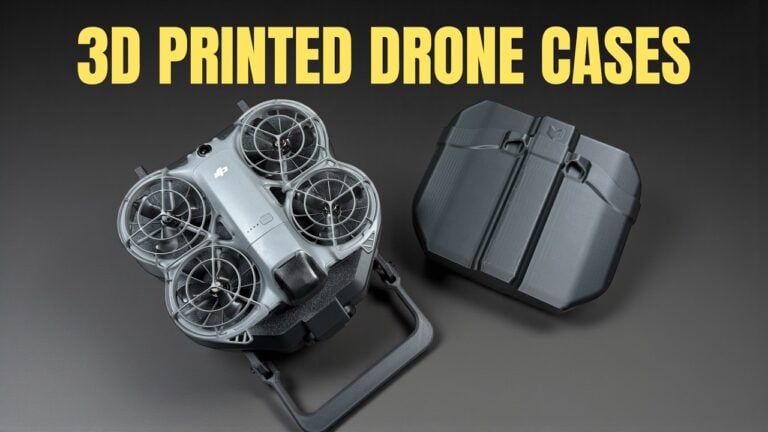
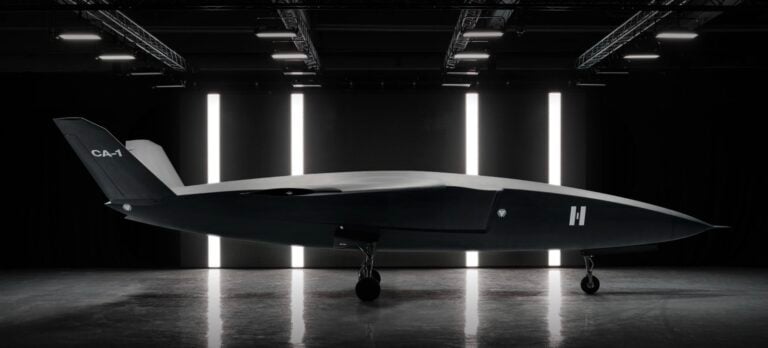

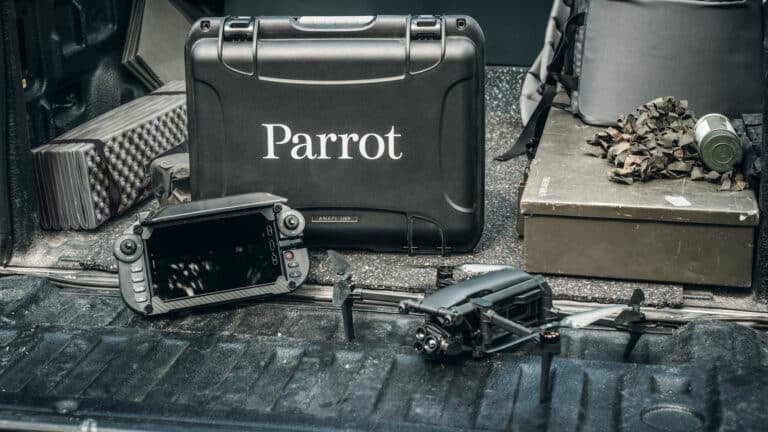

Why is it that no NATO country is so concerned with DJI as the United States? This is the end result of lobbying by American companies like Skydio that can’t compete at a reasonable price point to legislate DJI out of existence in the US marketplace. And as for Stefanik – I doubt she has ever touched a drone or attempted to engage with DJI. Her main concern is to look like she’s up to snuff on national security. Stefanik’s efforts will cripple my livelihood and negatively impact first responders, farmers, engineers, etc.
In the end, only government entities will be able to afford drones in the US. I guess that’s the plan all along. This December 23 deadline with no US agency tasked to audit DJI is a joke. My own efforts to reason with politicians have gone nowhere. It seems Tik Tok gets a series of never-ending extensions, but not DJI. The drone community must be too much of a minority to worry about in an election.
This! ^ 💯
The DJI shell game is a response to all the political games being played. A few years ago they were still considering to start making DJI drones right here in the US. Similar to what Toyota did decades ago.
Banning DJI drones at the end of this year will ultimately decimate the small business drone service providers… Same with the new proposed rules btw. Neither are small business friendly policies…